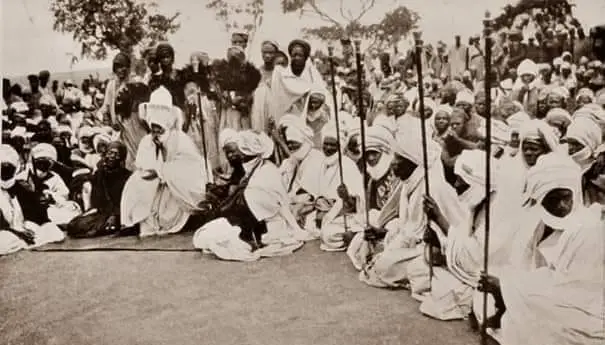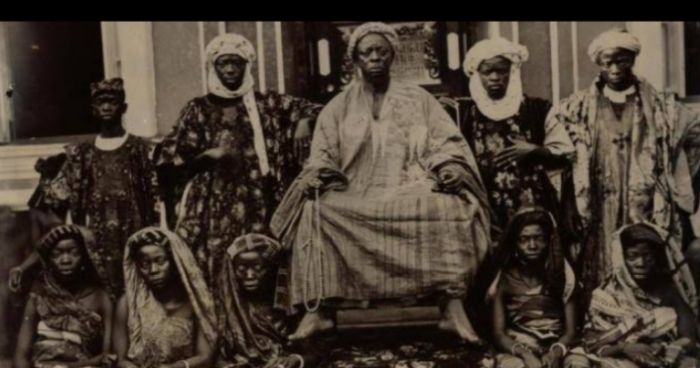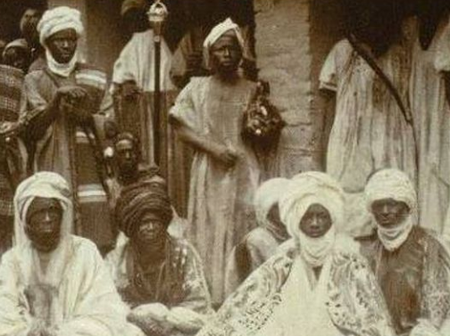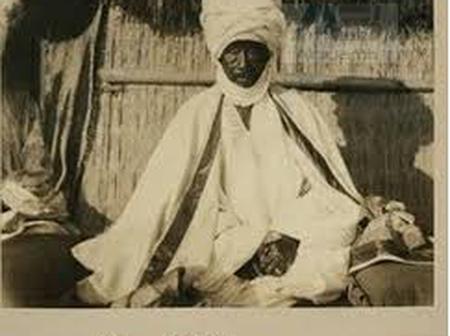The Ilorin Emirate was a traditional state in Kwara, a province under the leadership of the Fulani Caliphate, even though the Kingdom is primarily populated by the Yoruba-speaking people, with a handful of Hausas and Fulani populations. Before the 19th century, Ilorin was purely a Yoruba Kingdom, What happened in the cause of history and how did its fall under the rulership of the Fulani Caliphate?
History and Foundation of Ilorin
Ilorin was Founded in the late 18th century by the Yoruba people. The name “Ilorin” was derived from “Okuta Ilorin”, which means a stone used for sharpening metal. This stone was used by the founding father of Ilorin, Ojo Isekuse, to sharpen his metal tools.
Historical sources stated that The first settlers in Ilorin were Barubas who lived there for many years and considered the area their own; they left for no known reason. Then came Ojo Isekuse, a Yoruba hermit, who lived by the sharpening stone where hunters gathered to sharpen their wares. Ilorin was named after the sharpening stone.
Ojo Isekuse allegedly left after committing incest with his daughter, and another family named Asaju settled near the sharpening stone. It was after the Asajus that numerous people settled in different independent hamlets around the area called Ilorin today.
At the start of the 18th century, Ilorin served as a provincial military headquarters of the ancient Oyo Empire. It became the headquarters of an Oyo generalissimo, Afonja. Aole who was the Alaafin of Oyo at the time, was said to have killed his Father, Alaafin Abiodun to become the ruler of the Oyo empire. It was during these years that Afonja was appointed the Aare-Ona-Kakanfo of Yoruba Land and was domiciled in Ilorin.
Read More:
- The Origin and History of Kano
- Top 10 Largest African Empires In History
- Mansa Musa: The Richest Man in Africa’s History.
Conflict with Oyo Empire
The conflict between, Ilorin and the Oyo Empire began when Alaafin Aole commanded Afonja to attack Iwere-Ile, the hometown of late Alaafin Abiodun’s mother. It is not known why Aole, ordered the hometown of his paternal grandmother sacked. However, there existed a curse to the effect that any Kakanfo who attacked Iwere-Ile would die a horrible death, ostensibly placed by Alaafin Abiodun whose mum hailed from there. In addition, Afonja was also under oath from Abiodun. As a result of these, and other considerations, Afonja declined to carry out the orders of the Alaafin.
In 1795, the Alaafin ordered the Afonja to attack Apomu, a market town that is part of Ile-Ife. It is imperative to note that it is an abomination for other Yoruba kingdoms to attack Ile-Ife as it is considered the spiritual home of the Yoruba people. Afonja complied with the order of the Alaafin but on his return marched on Oyo, stormed the palace, and demanded that Aole should abdicate the throne, eventually forcing the King into ritual suicide.
Before these events, Afonja had Joined Forces with a Fulani Islamic cleric called Shehu Alimi, who ran from Oyo because of persecution by the Ogboni cult. Alimi succeeded in mobilizing a significant number of Muslims to support Afonja’s cause against the Oyo empire. In the initial conflict, Afonja’s forces emerged victorious against the Oyo army. However, the Alaafin decided to retaliate with a larger force aimed at suppressing Afonja’s rebellion and eliminating Shehu Alimi. In a preemptive move, Afonja’s forces attacked and burned down Oyo-Ile, the capital of the old Oyo Empire.
Ilorin Transition into Emirate
Ilorin became a major political and military force after the fall of old Oyo. With no named leader, both Afonja and Alimi provided leadership for the people living in that area. The duo enjoyed a cordial relationship until Alimi’s demise at a ripe old age.
After Shehu Alimi’s demise, there was a tussle for the rulership of Ilorin. The Fulani’s and Muslims who had become a significant percentage of the population, wanted to establish an Islamic Caliphate, while Afonja was planning on re-establishing his absolute rule.
Abdulsalam, a son of Shehu Alimi, emerged with the help of his warriors, the Jama’a the largest military body in Ilorin at the time. Using the advantage of language which Afonja and his core Yoruba commanders did not have, Afonja’s forces were infiltrated and a revolt was instigated against him. Afonja was killed when a brawl broke out between the Yoruba forces and Jama’a caused by the masquerade of Afonja.
After the death of Afonja, Abdul Salaam declared himself emir and pledged allegiance to Sokoto Caliphate in 1824. He banned Yoruba religion and masquerade festivals in Ilorin. Ilorin became an emirate of the Sokoto Caliphate under the authority of Gwandu.





